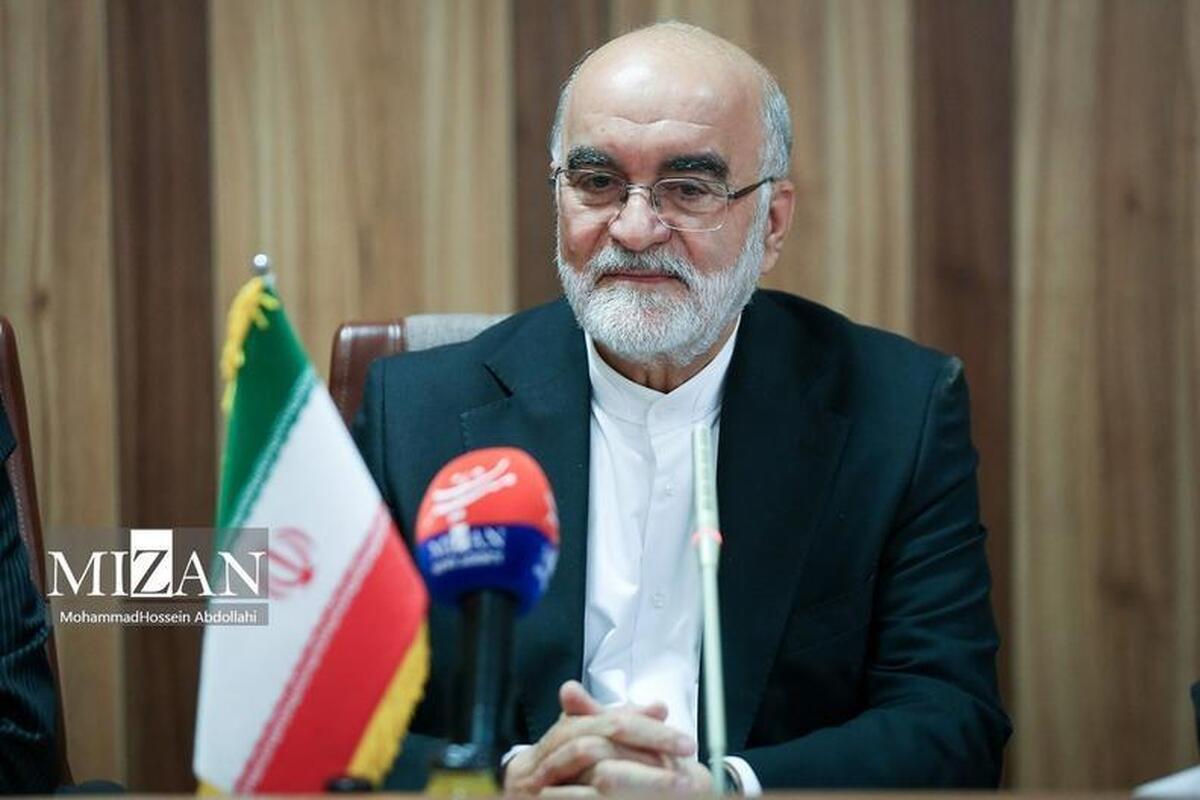Letter from the Secretary of Iran's High Council for Human Rights to the UN High Commissioner for Human Rights regarding the situation of Mahdieh Esfandiari in France

In a letter addressed to Mr. Volker Türk, the UN High Commissioner for Human Rights, Nasser Seraj, Secretary of the Islamic Republic of Iran’s High Council for Human Rights, expressed serious concerns about multiple and grave human rights violations committed by the French government against Ms. Mahdieh Esfandiari, an Iranian national.
He wrote: "As the Secretary of the High Council for Human Rights of the Islamic Republic of Iran—whose responsibilities include pursuing human rights violations and defending the infringed rights of Iranian citizens abroad—I wish to draw your attention through this letter to the numerous and blatant human rights violations against Ms. Mahdieh Esfandiari by the French government and to express our deep concern over the continuation of such abuses."
Mr. Seraj explained that: "Ms. Mahdieh Esfandiari, a 39-year-old Iranian citizen, translator, and graduate of the University of Lyon, residing in France, mysteriously disappeared on February 28, 2025. Her family, after being unable to contact her for approximately 12–13 days, notified Iranian authorities. Nearly a month later, in early April 2025, French judicial officials confirmed that she had been arrested and was being held in Fresnes Prison in the suburbs of Paris. The Paris Prosecutor's Office claimed that she was arrested on charges of ‘glorifying terrorism,’ specifically for allegedly publishing content on a Telegram channel in support of the “Al-Aqsa Storm” operation."
The letter further states: "This action by the French government and the baseless accusations underlying Ms. Esfandiari’s arbitrary detention raise two critical concerns: first, it constitutes a clear violation of her human rights and France's failure to uphold its international and human rights obligations. Second, it reflects the political and selective approach of Western governments—especially France—in dealing with human rights issues. This approach includes deliberate silence on the crimes against humanity committed by the Zionist regime against the oppressed people of Gaza, intentional disregard for global outrage over these atrocities, manipulation of global public opinion, and complicity in the ethnic cleansing of Palestinians. Such double standards starkly contradict France’s deafening rhetoric on human rights and expose the emptiness of its claims."
Seraj also noted: "As you are aware, France is a party to the 1963 Vienna Convention on Consular Relations, various international human rights instruments, their protocols, and the European Convention on Human Rights. These affiliations should, in principle, signify a high standard of human rights protection in France. However, Ms. Esfandiari’s arbitrary detention and unlawful trial suggest otherwise."
He emphasized: "According to Article 36 of the 1963 Vienna Convention, when a national of the sending State is arrested, detained, or imprisoned, the authorities of the receiving State must notify the consular post of the sending State without delay upon request. Yet, in this case, the French authorities failed to notify the Iranian embassy or her family in a timely manner, thereby violating their obligations."
The letter continues: "It is worth noting that the right to liberty and security is enshrined in Article 3 of the Universal Declaration of Human Rights, Article 9(1) of the International Covenant on Civil and Political Rights, and Article 5 of the European Convention on Human Rights. The French authorities, who are obliged to respect these rights, arbitrarily arrested and detained Ms. Esfandiari without legal justification, thereby grossly violating her rights. Furthermore, France is a party to the 1984 UN Convention Against Torture and Other Cruel, Inhuman or Degrading Treatment or Punishment. Under Articles 2, 7, and 3 of these international and regional legal instruments, France is obligated not to subject anyone to torture or inhuman or degrading treatment. Holding Ms. Esfandiari in solitary confinement for 70 days, subjecting her to intense psychological pressure, inhumane treatment, and degrading practices—such as forcing her to remove her hijab—violate her fundamental human rights under these conventions."
He stressed: "There is no doubt that the continued arbitrary detention of Ms. Esfandiari and her prosecution based on unfounded allegations cannot be considered a fair trial. A fair judicial process requires that the detention not be arbitrary, the court be competent, independent, and impartial, and the presumption of innocence be upheld. Is Ms. Esfandiari’s arbitrary detention, based on vague allegations such as posting a few messages on social media, consistent with impartial and lawful justice?"
Seraj added: "It is now obvious to any impartial observer that the Zionist regime systematically and egregiously violates fundamental principles of international law, the UN Charter, human rights, and international humanitarian law—committing crimes against humanity, ethnic cleansing, racial discrimination, and genocide against Palestinians. These brutal acts, particularly against vulnerable Palestinian women and children, have outraged global public conscience and sparked widespread international protests."
He concluded: "It is deeply regrettable that Western governments, instead of supporting the legitimate demands of the global community and standing against the crimes against humanity committed by the Zionist regime, continue to provide full-scale support to this criminal regime. Such double standards and instrumental use of human rights not only reinforce the sense of impunity among Zionist officials and encourage further brutal massacres of innocent Palestinians—including women and children—but also clearly demonstrate the insincerity and lack of moral integrity in the human rights claims of these Western powers."
In closing, Seraj wrote: "The High Council for Human Rights of the Islamic Republic of Iran strongly condemns these inhumane and politically motivated double standards on human rights and expresses deep concern about the continued arbitrary detention of Ms. Esfandiari. We urge you, as the highest-ranking human rights official in the United Nations, to take all necessary measures in line with your mission to protect human rights and ensure the implementation of international and human rights obligations by governments. This includes holding the French government accountable, preventing further violations, securing the immediate release of Ms. Esfandiari, compensating her for the moral and material damages suffered, and informing us of the measures taken."